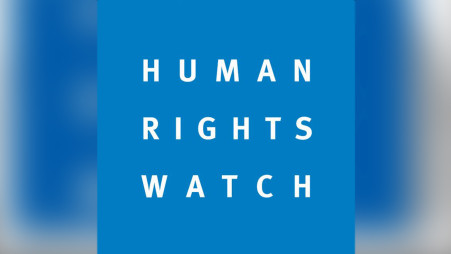HRW for impartial probe into 3 new extrajudicial killings in Kashmir
Authorities should investigate the extrajudicial killings and repeal law that perpetuates abuse in Indian Jammu and Kashmir, says Human Rights Watch

The Indian authorities should immediately order an independent, impartial investigation into the killings by security forces of three people in July 2020 in Jammu and Kashmir, Human Rights Watch said today.
The army claims that the three were militants and were killed in a retaliatory gunfight after they fired on the security forces during a search operation on July 18 in Shopian district, and were then buried in Baramulla district. But their families in Jammu, who identified them from photographs of the killings circulated on social media, said they were labourers who had gone in search of work. Following demands from political parties for an inquiry, on August 10, the army said it will investigate.
"Security forces have long operated with impunity in Kashmir, and past army investigations have been more focused on shielding those responsible for abuse than providing justice," said Meenakshi Ganguly, South Asia director at Human Rights Watch.
"There can be no end to the cycle of violence in Kashmir if security forces are not held accountable for their past and current abuses."
The families of those killed identified them and said they last had contact with them on July 17, after they reached Shopian to look for work. The families assumed they may have been quarantined when they could not get in touch after that. They identified their relatives from the photos uploaded on social media of those killed in the Shopian armed encounter and have since filed a missing person report at the police station. The police have said they are also investigating the killings.
Any army investigation into the recent killings will be meaningless, Human Rights Watch said, because the Armed Forces (Special Powers) Act (AFSPA) gives the security forces effective immunity from prosecution for serious human rights abuses. It grants the military wide powers to arrest, shoot to kill, and occupy or destroy property in counterinsurgency operations.
Since the law came into force in Jammu and Kashmir in 1990, the Indian government has not granted permission to prosecute any security force personnel in civilian courts. Human Rights Watch and others have long documented how the law has become a tool of state abuse, oppression, and discrimination, and called for its repeal. Affected residents, activists, government-appointed committees, politicians, and United Nations human rights bodies have criticized the law.
Indian officials claim that troops need such powers because the army is only deployed when national security is at serious risk from armed groups. However, the Supreme Court has said that all killings by security forces should be investigated and that such force was not permissible "even in an area declared as a disturbed area under AFSPA and against militants, insurgents and terrorists."
There have been numerous allegations of extrajudicial killings in Jammu and Kashmir. Most of those summarily executed are falsely reported to have died during armed clashes between the army and militants in what are euphemistically called "encounter killings."
A well-known example is the murder of five men in Pathribal who were identified by the police and army as the militants responsible for the massacre of 36 Sikhs in Chattisinghpora in Kashmir in 2000 and then killed in a supposed armed encounter. Forensic tests ordered by the state government later showed them to be local villagers who were innocent of the Sikh massacre. However, in January 2014, the army said it was closing the case for lack of evidence against the accused army officers.
In a rare case of justice, in November 2014, the army reported that a military court sentenced five soldiers, including two officers, to life in prison for faking an armed encounter and executing three innocent villagers in Machil in 2010. But in July 2017, a military tribunal suspended the punishment of all five soldiers, once again highlighting the culture of impunity.
The latest allegations of extrajudicial killings also come amid the Indian government's ongoing crackdown in Kashmir since it revoked Jammu and Kashmir state's constitutional autonomy in August 2019 and split it into two federally governed territories. Hundreds of people remain detained without charge, critics are threatened with arrest, and access to the internet is limited. There also have been several allegations of new arrests, torture, and ill-treatment by security forces. The government has also used harsh counterterrorism and sedition laws to clamp down on peaceful critics.
"The Indian authorities have failed the Kashmiri people and have long denied them justice for decades of abuses by security forces, leading to a cycle of unending violence," Ganguly said. "The government should repeal AFSPA, ensure a civilian and independent investigation into the latest killings, and reverse its ongoing restrains on basic rights."



 Keep updated, follow The Business Standard's Google news channel
Keep updated, follow The Business Standard's Google news channel
















